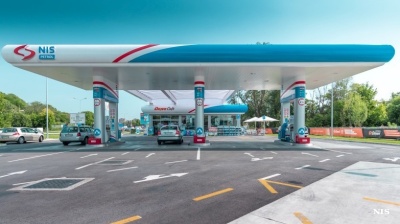The Czech government has a huge blindspot on green issues – one that could hamper its current presidency of the European Union, as well as prevent it from tackling some of the country’s biggest problems, such as its dependency on Russian energy, soaring energy bills, worsening environmental problems, and its stuttering economic model.
Since taking over the rotating presidency on July 1, Czech Prime Minister Petr Fiala has been presiding over two key EU goals – to move towards a sustainable economic model and to cut off Russian energy imports following its invasion of Ukraine.
In theory, the two goals should reinforce each other: the drive to cut dependence on Russian fossil fuels should help the goal of moving towards green energy in order to mitigate climate change, but there is also pressure from some member states to relax the EU’s green policies because of the surge in energy prices, sparked by Russia’s invasion.
The Czech government, which only took office just before Christmas, will struggle to play an honest broker in this debate because the neoliberal Civic Democrats (ODS), who hold both the posts of prime minister and finance minister, remain highly sceptical of efforts to mitigate climate change by promoting green energy and e-mobility – as well of the EU itself.
Fiala even recently campaigned to reopen the debate on the EU Green Deal, telling a TV debate before the November general election that the next government "needs to reject" the EU‘s plan to stop the production of cars with combustion engines.
But the ODS' worst instincts are restrained by the other four parties in the centre-right coalition, with the liberal Pirate party in particular having a very different stance on green issues.
The coalition agreement is a compromise that gives with one hand while taking away with the other. "We are taking seriously upcoming energy transformation to renewable sources, but we refuse to give up on energy security, self-sustainability and independence," the programme states.
On the Green Deal it warns: "In negotiating concrete measures the Czech cabinet will take into account the possible social impact and specific conditions in the Czech Republic."
Recently Fiala has taken a more pragmatic approach, posting on Facebook in May: “The Green Deal is a reality now. There is no point in discussing what could have been done differently. Now we have to use the opportunity to modernise the Czech economy through investments into renewables, the circular economy and to raise the quality of life in Czechia."
In Brussels, the government appears to want to refocus its presidency on energy security rather than green energy, a shift made more credible by the urgency of the task of reducing the bloc‘s dependence on Moscow.
The Czech government has little freedom of movement in the green debate but it could effect a change of emphasis or maybe even a change of timetable, Zdenek Beranek, foreign policy advisor for Marketa Pekarova, speaker of the lower house and leader of the coalition TOPO9 party, told bne IntelliNews. “It’s not realistic for the Czech Republic to oppose the process but we will open the debate on what to do with the regions that are very dependent on the auto industry [such as the Czech Republic]," he says.
Ideological blinkers
More worrying perhaps is that the ODS‘ ideological blinkers on green issues could prevent it solving some of the Czech Republic’s biggest domestic challenges.
The first challenge is the need to reduce the country’s damaging dependency on Russian oil, gas and nuclear fuel and technology, a goal that should in theory reinforce the shift away from fossil fuels but could conflict with it in the short term because of the risk of energy shortages.
Czechia depends on Russia for 87% of its gas and virtually all its oil. This week rating agency Moody’s changed its outlook for the country’s credit rating to negative because of this dependence.
Here the government is united – all the coalition parties are strongly anti-Putin – even if there is still some debate on what energy sources the country should prioritise as substitutes, with the Pirates less keen on the nuclear option preferred by the other parties.
Neighbouring Poland has used the crisis over Russian fuel sources to try to increase coal production again and to temporarily slow down the green transition – a talking point that billionaire populist and former premier Andrej Babis has also begun to toy with, along with ambivalence on confronting Russia.
But so far the Czech government, like Viktor Orban’s régime in Hungary, has instead used the crisis to double down on its bet on nuclear energy, rather than pursue green options. It strongly supported the EU compromise pursued by the previous Babis government on including nuclear power as a sustainable energy source.
The Babis government had also already excluded Russia from the tender to build new reactors at the Dukovany nuclear power plant and the current cabinet has taken steps to switch completely to using non-Russian fuel.
Oil and gas remain more problematic because previous governments did little to reduce this dependency. A previous ODS government began sourcing Norwegian gas supplies but Babis‘ government had allowed this to lapse. Babiš was also recently accused by Bohuslav Sobotka, a former Social Democrat PM, of deliberately derailing the project of building a gas pipeline connecting Czech eastern regions in Moravia with the recently built Polish LNG terminal.
So far the government, through its majority state-owned energy company CEZ, has secured 3bn cubic metres of annual gas capacity via an LNG terminal in the Netherlands. It is also moving swiftly to fill the country’s gas storage facilities (currently they are at 77% capacity). Nevertheless, the government has said that a full embargo on Russian gas would be extremely damaging.
On oil, the government is also in a very weak position, though it successfully managed to win an exception from the EU sanctions for oil pipeline supplies, putting off the threat of a shortfall for now.
The second major challenge related to energy that the government faces is how to manage the cost of living crisis caused by rising fuel bills. Unlike its neighbours, it believes in neoliberal shibboleths about not interfering in the market and keeping budget expenditures low. This has meant that it has been reluctant to impose price caps (as in Hungary) or to throw money at energy customers (as in Poland).
It is still working out what kind of aid to give to consumers, though it is likely to be a one-size-fits-all payment, rather than a progressive one linked to need, as international financial institutions have recommended.
The government’s hesitation on splashing the cash is due to its concerns over the ballooning deficit. After ripping up the 2022 budget passed by Babis‘ outgoing government, it made a huge fanfare of announcing one with nearly a CZK100bn lower deficit. Now it has been forced to widen the deficit by CZK50bn again, blaming the Ukraine war, though in reality it is its refusal to raise taxes that has made the deficit bulge again.
At the same time it has left itself wide open to charges from Babis – who is likely to announce his candidature for president this autumn – that it is being niggardly about helping consumers, while at the same time being overly generous in helping Ukrainian refugees. This is a trope that populists across the region are now beginning to rehearse.
Taking away the blindfolds
But there are also even more fundamental challenges the country faces. Recent Czech governments have taken a very half hearted attitude towards fighting climate change, and the country remains one of the worst greenhouse gas polluters per capita in the EU.
Public opinion is still ambivalent about climate change compared to Western Europe, encouraged by the fact that several political parties – notábly the ODS – continue to downplay the problém. This is slowly changing: From 42% of Czechs not worried about climate change in 2016, now 28% are not worried, but this still makes Czechs among the most relaxed about climate change in Europe.
A succession of droughts and floods and now a devastating fire in the beautiful Bohemian Switzerland region are now gradually opening Czechs eyes to the fact that climate change is a very real threat.
Even Fiala admitted as much to CNN this week: "I would have to have blindfolds on my eyes and not to think with reason – which would not be right wing at all – if I did not see that climate is changing in a certain way and that all of Europe copes with fires caused by extraordinary heat."
Popular blogger Karel Patak (known as Visegrad rider) told bne Intellinews that with the ongoing blaze “climate change has for a little while made it to the top of the interest list of the Czech electorate”, and that normally it would have been there for a long time had not the “populist, extremists as well as some coalition parties turned denying the impact of climate change” into an ideology.
“Hopefully Fiala’s awakening will last and won’t disappear with the containment of the last flames in the Bohemian Switzerland. There has been too much fossil hypocrisy already,” added Patak.
Fourthly, there is also a need to seize the opportunity of the EU’s Green Deal to shift Czechia from an old assembly line model of development, based on energy-intensive heavy industry – especially petrol engine cars – and attracting foreign investment through low wages and taxes and generous incentives.
Over the past 25 years this model has helped bring the country close to the EU’s average GDP per capita on a purchasing power basis but convergence has now virtually halted and has actually gone backwards because of the coronacrisis. Czechia’s GDP per capita (at purchasing power standard) as a percentage of the EU average fell from 93% in 2020 to 91% last year.
The old model has reached its limits and is now challenged by rising energy prices, climate change, competition from lower-cost developing countries, as well as automation and the digital revolution – where Czechia ranks well below the EU average in the EU’s Digital Economy and Society Index.
The country needs to move into more higher value-added industries, such as green techologies and e-mobility solutions. However, until now politicians have just given lip service to this idea. The government’s targets for renewable energy and reducing greenhouse gases have been regularly criticised by the EU for lacking ambition. Incentives for green energy investments and electric vehicles are also very low compared to the EU average.
Fiala’s ODS seems to have an ideological block on this subject, stemming from the continuing influence of its founder, Vaclav Klaus, who has subsequently come out as a climate change denier and now openly supports Germany’s neo-fascist Alternative für Deutschland. Czech MEPs Alexandr Vondra and Jan Zaharadil – who opposed the EU goal to end the sale of new cars with combustion engines by 2035 –often parrot Klaus’s comments, as do ODS members of parliament and Fiala himself.
The party’s stance is also a result of its links to the country’s energy oligarchs, notábly Daniel Kretinsky, owner of EPH, and Pavel Tykac, owner of Sev.en Energy. EPH is now the country’s no. 1 energy business through its foreign investments – notably importing Russian gas – and Kretinsky also has significant media power, particularly through his ownership of Blesk, the best-selling daily.
Former ODS Prime Minister Mirek Topolanek, who was brought down by a corruption scandal, moved swiftly from the Prime Minister’s Office, where he followed policies beneficial to the oligarchs, to actually working for Kretinsky. Topolanek frequently targets the EU and its green policies, referring to the EU as the "green Taliban".
EPH and Tykac’s Sev-en Energy want a slow transition to a carbon-neutral future, with EPH setting a company target of as late as 2050 for going carbon-neutral, while Sev-en Energy has yet to commit to a date. Tykač has recently made several media appearances arguing that if Czechia is to cut its reliance on the Russian energy supplies it will result in a dramatic fall of living standards and popular unrest unseen in the country up to now.
But the Czech government failure is much wider than just the ODS, with Social Democrat (CSSD) governments and Babis‘ populist ANO party continuing to defend heavy industry, including coal mines and coal-burning power plants, while giving only niggardly incentives for green energy or e-mobility. As premier, Babis tried to block the EU’s target of going carbon-neutral by 2050 and in the election campaign he attacked what he called the “green madness” the EU was imposing on the country.
The CEZ Republic
This cross-party consensus is epitomised by the way CEZ, the majority state-owned power utility, has remained so dominant in forming the country’s energy policy.
Czech has recently burnished its green credentials by publishing its Vision 2030, according to which the company plans to become carbon neutral by 2040. It aims to reduce the share of coal-fired electricity generation from 39% in 2019 to 25% by 2025 and to 12.5% by 2030, partly by building 1.5 GW of renewable energy by 2025 and 6 GW of RES by 2030. But it remains focussed on nuclear power and particular the expansion of Dukovany.
CEZ‘s Chief Executive Daniel Benes has remained in chargé since 2011, through ODS, CSSD, ANO and then again ODS-led administrations, despite a series of scandals as well as threats by political leaders to remove him once they win power. He is said to have the backing of current President Milos Zeman (a former CSSD leader), as well as Klaus, his ODS predecessor.
In the past CEZ was rumoured to have also been used as a piggy bank by both the CSSD and ODS, allegations it has always denied.
Czech governments have continued to defend CEZ’s strong market position against EU probes– it is now facing a new challenge from Brussels over the funding of its massive investment at Dukovany – while media reports about cosy deals with Kretinsky’s and Tykac’s energy companies have not been properly investigated by the Czech competition office.
“If, after the new cabinet assumed office, we expected to see the breaking of influence the CEZ management has had on the state’s decision making, and which has been nourished for many long years, then we were simply wrong,” Edvard Sequens, environmental NGO Calla lead economy analyst, told bne Intellinews, adding that this influence is perhaps even bigger than ever.
“We can see this now when the state provided CEZ with an exclusive loan of CZK74bn to secure CEZ’s electricity trading at a mere 3% interest rate, and the investment into the new nuclear reactor will involve a further loan of more than CZK200bn.”
Despite its previous criticism, the new ODS-led government has followed its predecessor by backing the company’s plan to build new units at Dukovany and to do so by nationalising its nuclear division – as minority shareholders would probably sue CEZ for investing in such a costly and financially risky project.
The government still seems some way from detailing its plans, but if it follows predecent, it is likely to choose an option put together by CEZ management itself. Any buyout of the nuclear division, as well as the investment in Dukovany, is of course set to make it very difficult for the government to slash the budget deficit, let alone offer tax cuts, as the ODS still dreams about.
Similarily, CEZ management seems to be winning its campaign against a special windfall tax on the energy sector in order to pay for a scheme to compensate customers for the soaring prices. Instead CEZ is offering to pay a super dividend from its bumper profits, which would also conveniently boost the share price and management bonus scheme payouts.
The Czech government will need to face down CEZ and the country’s energy oligarchs if it is to have any chance of meeting the challenges of cutting the country’s dependence on Russian energy, mitigating the cost of living crisis, keeping the budget deficit under control, as well as the longer-term tasks of tackling climate change and moving to a new sustainable growth model.
Features
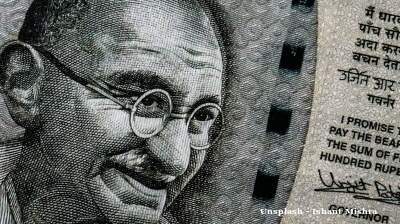
Indian bank deposits to grow steadily in FY26 amid liquidity boost
Deposit growth at Indian banks is projected to remain adequate in FY2025-26, supported by an improved liquidity environment and regulatory measures that are expected to sustain credit expansion of 11–12%
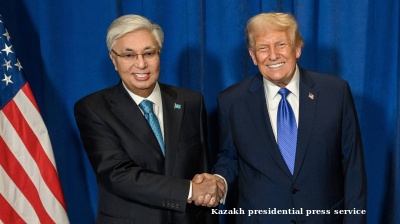
What Central Asia wants out of the upcoming Washington summit
Clarity on critical minerals and a lot else.
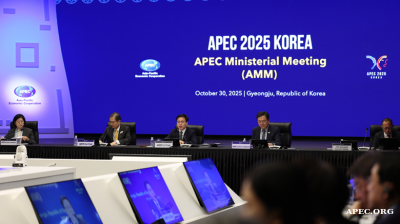
Global leaders gather in Gyeongju to shape APEC cooperation
Global leaders are arriving in Gyeongju, the cultural hub of North Gyeongsang Province, as South Korea hosts the Asia Pacific Economic Cooperation summit. Delegates from 21 member economies are expected to discuss trade, technology and security.
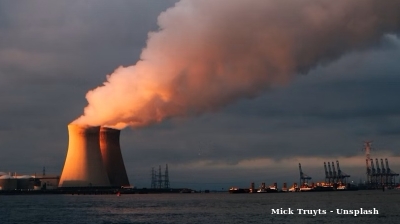
Project Matador marks new South Korea-US nuclear collaboration
Fermi America, a private energy developer in the United States, is moving ahead with what could become one of the most significant privately financed clean energy projects globally.


